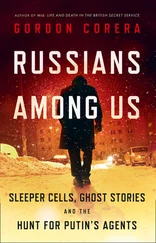Admiral Roger Keyes was quickly approached by Military Intelligence. He would have remembered the meeting with the chaplain well. It was a day he would never forget. Keyes was close to King Leopold of Belgium, a friendship forged in the First World War when the sailor had led the Dover Patrol and the Belgian royal family frequently crossed the Channel. Leopold, then a boy, had attended Eton during term time, occasionally lunching with Britain’s royal family, but returning to serve on the front line during vacations. His father had stayed in Belgium as king during the war, a decision popular in the country.
Leopold had come to the throne in 1934 when his father died in a mountaineering accident. His reign would prove troubled and started darkly. A year after coming to the throne, Leopold was driving in Switzerland when he lost control of his car and it crashed, killing his wife Queen Astrid. By that time, his old friend Keyes had retired as an admiral and been elected to Parliament in Britain. A buccaneering character, although not necessarily of the highest intellect, Keyes had long been a close friend of Churchill, one of his allies who warned of the dangers of appeasing Nazi Germany.
On 7 May 1940, Keyes played a leading role in the unseating of Neville Chamberlain as Prime Minister when he stood up in the House of Commons, wearing his uniform with six rows of medals, and launched a passionate denunciation of the government’s ineptitude. Three days later, on 10 May, Belgium was attacked without warning at dawn. The country had desperately clung to its neutrality in the hope it might offer protection. But this proved a false hope. Its armies were poorly prepared for the onslaught of the formidable German war machine. That morning Keyes received a telephone message summoning him to see Churchill. At that moment Churchill was still First Lord of the Admiralty, but by the end of the day, with Neville Chamberlain ousted from Downing Street, he would be Prime Minister.
Churchill told Keyes to put on his uniform and fly to Belgium to act as his special representative to the King. Keyes had already made a number of visits in recent months on behalf of the government to take advantage of his friendship with Leopold (who was also commander in chief of the Belgian army). By 3.30 that afternoon Keyes was flying out of Hendon to Amiens, escorted by three RAF Hurricanes. That night he drove to a blacked-out Brussels, passing lorries and buses full of troops from the British Expeditionary Force, who were suddenly in a precarious position as the German military tore through the country at frightening speed.
Keyes saw the King the next morning at an old moated fort twenty miles outside the capital. Leopold was not yet forty, with a gentle face and curly hair. Nothing had prepared him for what his country was now going through and his ability to lead his nation would be sorely tested. The shell-shocked King told Keyes that as the invasion began a hundred German troops had landed atop a fort and placed bombs down ventilators, putting it out of action, whilst all but seven Belgian aircraft had been destroyed by German attacks on the country’s aerodromes. Much to Britain’s annoyance, the King had clung too long to the false hope of neutrality; now he pleaded for British air support to avoid what he called ‘an absolute debacle’. But Britain’s military leadership was also in chaos and coordination with the French and Belgian armies was abysmal.
Initially, the British Expeditionary Force advanced. The Times correspondent in Belgium travelling with the BEF (a certain Kim Philby) told a colleague ‘it went too damn well’. The reason was that Hitler was trying to draw the British army into a trap.
Over the next two weeks, Keyes’s telegrams back to Churchill, who was by now Prime Minister, carried increasingly dire news. The Germans were moving fast – so fast that the MI6 station in Brussels lurched from complacency to panic and had to burn its papers in a furnace and hurl its teleprinter out of the window to ensure nothing was captured, while MI6 officers took turns to guard the office with a long-barrelled Luger pistol. The Germans strafed military and civilians alike as they fled the cities by road and rail. Suddenly, the British force realized they risked being trapped and began to make a desperate retreat under pressure; London was initially less than honest with the Belgians after the decision was made for the BEF to abandon the country, using the Belgian army as cover while they headed towards the coast. They made their way, amidst scenes of chaos and confusion, for Dunkirk where hundreds of boats, including the ‘little ships’, a flotilla of fishing vessels, pleasure craft and lifeboats, waited to ferry them back over the Channel.
But where did the mysterious chaplain come in? Raskin’s royal connection dated back to the First World War. He had played music in a convent whose services were attended by Queen Elizabeth and had been introduced to her. After the Queen’s husband, King Albert, died in 1934, she became Queen Mother to King Leopold. She had arrived with the King at the castle of Wijnendale on 24 May. She asked her chamberlain, Comte de Grunne, to organize mass to be celebrated in the private chapel.
Raskin was acting as chaplain to soldiers in nearby Torhout and was asked to come to the royal court as personal chaplain to the royal family. For the next few days, he would be picked up by car and taken to see them. The journey for Raskin on Sunday, 26 May had been perilous as the Germans bombed the roads from the air, leaving craters and burning vehicles. Raskin took confession from the royal family and held a heavy, solemn mass at 10 a.m. by the Baroque altar under the domed vault of the chapel, which was located in the castle’s highest tower. His words and the singing of the congregation must have been spirited to overcome the sound of enemy aircraft flying overhead. Afterwards, Raskin spoke to the King at length, one to one. Leopold looked and sounded like a man not quite able to cope with the huge burden that lay upon his shoulders. He asked for the priest’s prayers as he agonized over the decision of whether to stay in a country that was collapsing or flee to Britain.
Raskin was a decade older than the monarch, and sought to stiffen the resolve of a man who seemed to struggle with the burden of kingship. He stressed to Leopold the tight bond between faith, the nation and the monarchy, in which the priest himself fervently believed. Raskin said he was sure the nation would support the King. The monarch should face the plans God had for him with patience and confidence. As he finished speaking, the King, trembling slightly, clasped Raskin’s two hands. ‘Chaplain, I understand. I understand,’ he said.
The day Admiral Keyes had met Raskin was the darkest. Everyone knew the end for Belgium was nigh. Churchill was desperate for the King to flee to Britain and not make any kind of deal with Hitler. The question for Leopold was whether he should lead an army in exile or stay with his people. He wanted to emulate his father, who had won support by remaining. But he did not understand this was a different war. His ministers either fled or wanted to leave, and were angry as he indicated he would stay. They were to arrive in London in dribs and drabs, but the bad blood from those days in May and the legacy of the choices each individual made would bedevil Belgium for years to come.
At 6 a.m. on 27 May, Keyes received a telegram from King George VI of England to pass on to his fellow monarch, asking him to reconsider his plans to stay. ‘I do not feel that Your Majesty is called upon to make the sacrifice which you contemplate,’ one king wrote to another. It went on to argue that the risk of being taken prisoner by the Germans and depriving his people of a leader was too great. Keyes gave the message to Leopold, who took it to his bedroom to read with Elizabeth. Leopold’s view was that he had no choice. ‘I feel my duty impels me to share the fate of my army and to remain with my people. To act otherwise would amount to desertion,’ he replied.
Читать дальше












